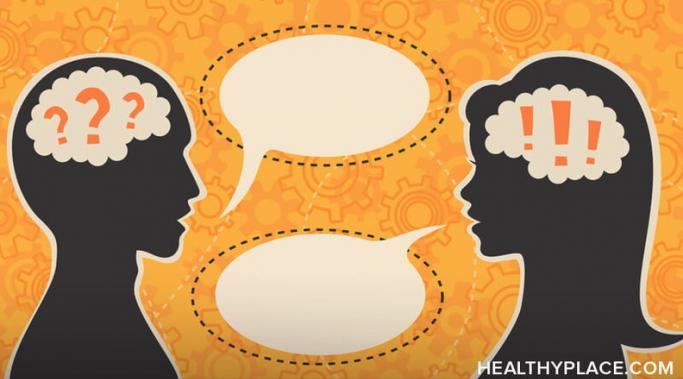Talking to kids about verbal abuse and bullying is an important part of preparing your children for the rocky road of adolescence. By discussing the realities of bullying in school, how to respond to it, who to talk to, and how to treat others you are equipping your child with invaluable life skills and contributing to the prevention of bullying in your community. Bullying has a profound impact on the mental and social well-being of children, from the time they are youngsters in elementary school to budding adults in high school. Educating our youth on how to treat others and how they should act in the case they mistreated is an investment in our kids and something every parent and teacher should make a priority. Read on for five important points to discuss with your child about verbal abuse and bullying.
Signs and Symptoms of Abuse
Technology is enabling a new breed of domestic violence: tech abuse in relationships. With the rise of tracking software, geotagging, Internet banking apps and social media, abusers now have more tools in their arsenal than ever before. This issue poses more questions than answers, such as who is addressing the role of tech abuse in controlling or violent relationships? And can technology ever be part of the solution, rather than just the problem? Let's examine tech abuse and the role of technology in abusive relationships.
Consequences of verbal abuse can creep up on anyone suffering abuse, causing severe and lasting effects. Verbal abuse in relationships begins slowly and then typically gets progressively worse, the abuse serving as a catalyst for dangerous psychological consequences for the victim. A verbally abusive relationship can cause a person to become plagued with depression, mood swings, lowered self-esteem, misplaced guilt, isolation, loneliness, and posttraumatic stress disorder (PTSD). Although these negative side effects may outlast the relationship itself, they are not generally permanent and can be treated and overcome completely. Continue reading to find out more about these seven consequences of verbal abuse.
Threats are abuse and are considered obvious signs of abuse in a relationship. After all, a threat is pretty easy to recognize, isn't it? Not always. Threats can be veiled with humor or hidden within an argument, but, if we dig a little deeper, the perpetrator's message is clear: If you don't do what I want, I'll make you regret it. Making any kind of threat in a relationship is a power play that seems obvious on the surface, but it can be difficult to spot. Threats are abuse, so how are threats hidden in seemingly normal relationships and how can we call them out?
Talking about verbal abuse isn't easy. Have you ever brought up the issue of verbal abuse in a conversation and instantly been met with an eye roll, groan, or grimace? If the answer is yes, you're not alone. People don't generally like to talk about verbal abuse and even less, be accused of verbal abuse, especially if you're using the words "verbal abuse." In this modern age of politically correct and technical language and the aversion that comes with it, how do we begin talking about verbal abuse, a rampant issue that affects nearly everyone at one point in their lives?
Love bombing is the single most effective gaslighting tactic there is and it's anything but romantic. If you haven't heard the term before, you can think of love bombing as a breadcrumb trail of compliments, gifts and expressions of love, all of which make you feel safe and valued at the start of a relationship. Sounds ideal, right? It sure feels that way in the beginning, but what if you're actually being groomed for verbal and physical abuse? Here's how to tell if you are being love bombed and why you should take shelter immediately.
If you're verbally abused at work, you may be surprised to learn that verbal abuse in the workplace is more common than you might think and it's a real problem. Not only is it detrimental to productivity, verbal abuse also undermines confidence and stunts career progression, leaving those affected feeling powerless. If you think you or a colleague are being verbally abused at work, read this for how to spot verbal abuse in your workplace, and what to do when it happens.
There is a growing awareness around coercive control, as well as umbrella terms like verbal and emotional abuse. This is partly thanks to the UK law that was passed in 2015 (carrying a prison sentence of up to five years for perpetrators), and also due to celebrities speaking out as part of the #metoo and #timesup movements. Although no such progress has been made in the US in terms of legislation, this is still a step in the right direction; it's the start of our cultures taking lesser-known forms of domestic violence more seriously and recognizing the devastating effects of verbal abuse (as well as other types of abuse). So what exactly is coercive control, and how does it differ from other forms of abuse in a relationship?
Whether it's abuse in movies or in our lives, overcoming abuse is no simple feat -- even abuse in the movies. A quality cinematic experience, or just lounging in sweats watching Netflix, can transport us to another time and place, it allows us to vicariously live through the characters we admire and adore. For some, it can be an even deeper connection, especially when we see a character suffer abuse in movies that we ourselves have personally endured. The following five protagonists suffer and prevail, overcoming abuse to reach the hearts of abuse victims everywhere.
When in the depths of relationship abuse, you're probably considering how your abuser is sabotaging your life. While being proactive and optimistic are important and beneficial, understanding your circumstances is as well. Relationship abuse commonly consists of many abusive behaviors that are sabotaging to the victim's life, and while not all of the behaviors below may be the case for every abusive relationship, there are certainly many that may feel familiar for different cases. Warning, bleak reality checks ahead.









